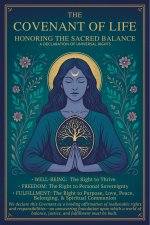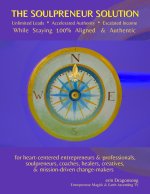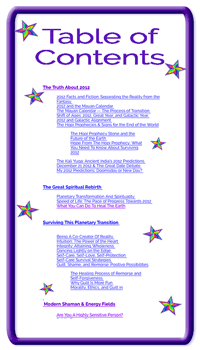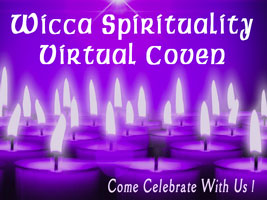A Brief History of Wicca

|
|
|
|
|
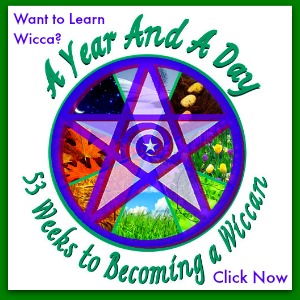
|
- Is Wicca really a continuation of the Old Religion?
- What historical evidence exists?
- What is Wicca really based on, if not Celtic Witch Craft or Druidism?
The Old Religion
Who were the Witches?
Where did they come from?
Maybe your great-great-
Grandmother was one . . .
— Wiccan Children's Song
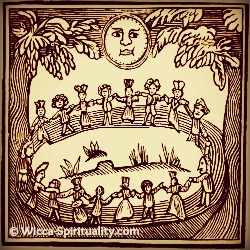 |
What Did Ancient Witches Really Do?
Unfortunately, we can't reach back into the history of what Wicca used to be, to see the reality for ourselves. But we there are some things we can know. Ignoring the difficulty of labels — Wiccan, Witch, Pagan, Druid, etc. — we know that ancient nature religions have a lot of things in common. The empowerment of women, for one thing. A reverence for the Earth as mother and teacher. Respect for the body and its pleasures. And there was a lot more acceptance of what is, rather than trying so hard to enforce what "should" be as we see in modern religions. There were also certain things we can be sure fell under the responsibility of ancient priestesses and perhaps priests...- Midwifery
- Healing of people and animals
- Dispensing herbal pharmaceuticals
- Spiritual nurturance and guidance
- Reading omens and making predictions
- Shepherding the cycles of life
So Then What Is Wicca Today?
Of course, there is no evidence that modern Wicca is not the direct continuation of the ancient Pagan religion, either! The history of Wicca, as with all anthropology, is lost to us forever: we will never be able to say with absolute conviction what our ancestors did or thought or felt. In science, when there can be no final proof nor disproof, the question is deemed to be meaningless. We will never know the answer. What's left, then, is what we believe. Most Wiccans prefer to claim an ancient heritage. And in some ways, it's indisputable that Wicca stems more or less directly from ancient Pagan religions. Personally, I believe that...Wicca is a reincarnation of the Old Religion.
An heir, rather than the original. Even if Wicca has continued through the ages, it must be quite different now from what our ancestors used to practice, because we as a culture are far removed from the concerns and experiences of their lives.An Upstart Religion?
Does a lack of history of its own show Wicca as a less-valid religion? Quite the contrary! Buddhism was as valid when Buddha was alive as it is today... perhaps even more so! Same with Christianity. I think this fear of negation is the biggest reason people insist that Wicca is an ancient rather than a modern religion. However, this can actually be a source of empowerment rather than diminishment. How valid can ancient religions be, in this era of unprecedented upheaval, information, and spiritual evolution? Spiritual practices, yes — they endure far longer than religions, because they are embedded in deeper truths. And if we don't try to limit modern Wicca and Witchcraft to the roles of ancient history, we gain the opportunity to liberate it from its standing as a mere religion, and elevate it to true spiritual practice. That's what Wicca Spirituality is all about. This is a New Wicca, designed in and for the contemporary world. And this is why Wicca is a perfect spirituality for the 21st century. But the history of Wicca belongs to history. And what Wicca is now, belongs to us, the spiritual descendants of those ancient Witches and Pagans.The Modern History of Wicca
There are other Wiccans who are of (what we might call) the Modern Theory of the history of Wicca. Their assertion is that Wicca is not an ancient religion at all, but the modern creation of Gerald Gardner. Ironically, Gardner himself claimed that what he was teaching was not a new invention but an unbroken lineage of an ancient religion. However, it's true that much of what Wicca is today, particularly British Traditional Wicca (BTW), came from Gardner and his covenmates and followers. The names of certain Sabbats, for instance, were codified in the last century. But there's also a lot that Gardner wanted to bring into his version of Wicca that a lot of Wiccans — the vast majority, these days, I'd wager — want nothing to do with. For example, the gender binary that Gardner considered essential, the S&M leanings, and the sexual interplay are not central to most other forms of Wicca.The Father of Wicca?
Gardner has been hailed as "the father of Wicca." There's a bit of a misunderstanding embedded in that statement. Wicca was not entirely "invented" by Gardner, or any modern person. Regardless of its blemished continuity, Wicca does have its foundations in the ancient religion that predated Christ by many thousands of years ... even predated Moses. But much of the form was lost, particularly during the persecutions of the Dark Ages. While Wicca has been practiced in some form by some groups of people all along, much had to be lost along the way because of the secrecy that became required. Also, while Gardner was a strong influence in the rebirth of Wicca, we must remember that (in the finest traditions of patriarchy) one male receives credit for what a group achieved... particularly with the contributions of Doreen Valiente (the "mother of Wicca"). What Gardner, Valiente, et al actually accomplished was...A) codifying the bits of ancient Witchcraft that could be found or reasonably assumed, B) bringing it into public consciousness, C) updating it to something that would relate to the modern, nonagricultural, somewhat more conscious society of the day, and D) starting the popular movement of reclaiming this ancient religion and heritage.Not inconsequential! But hardly the be-all and end-all of the development of modern Wicca.
<
An Evolving Spiritual Tradition
In the best traditions of spiritual paradox, Wicca as we know it today is the lovechild of both the uninterrupted lineage of ancient Witchcraft, and the creation of the Gardner-Valiente coven and followers. If this disturbs you, and makes it seem less real than Christianity, for example... you might remember that at the time of Christ — and for many centuries afterward! — Christianity was entirely new, and mostly made up as it went along. You can see this in any study of the origins of Christianity. There was at first just an idea, and one teacher, and it evolved into many different groups with different ways of understanding the message of Jesus, and so on. It was the same with Judaism, Buddhism, Islam, Taoism... every single religion started one day, with one main leader, group, or idea. How else could new understandings of Divinity possibly expand? Over time, religions gain credibility because they've been around a while... which suggests there is something real to them, since so many people follow them for so long. In which case, Paganism might be seen to be the most credible religion ever, because it was the first and most enduring religion — only partially extinguished even with the concerted effort of a centuries-long reign of terror, torture, and murder! But the credibility of any religion is not really how long it lasts but how true it is. There are many ways to Truth, and as humanity evolves, different ways are perceived. The validity of Wicca is not based on its age, but on its correlation with Divine reality and spiritual truths ... just as Moses' or Buddha's or Jesus' or Muhammad's original message was. This is all that can be true of any religion.With Brightest Blessings,
erin Dragonsong

Return from
Brief History of Wicca
to
Wicca Information

